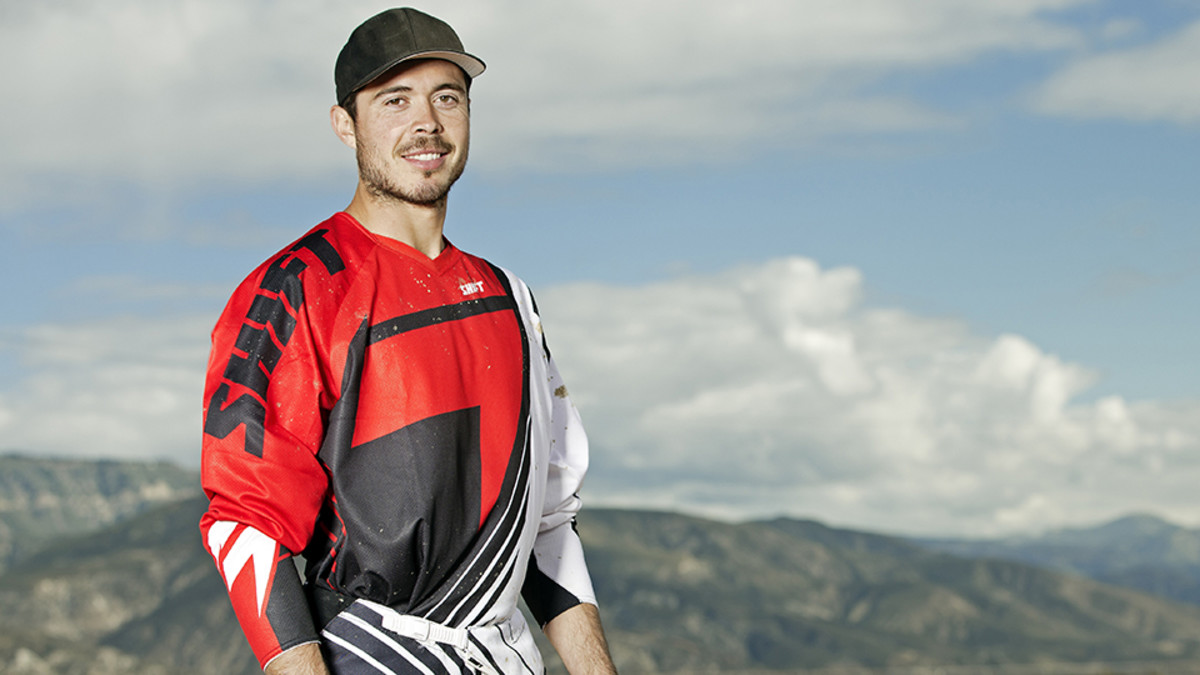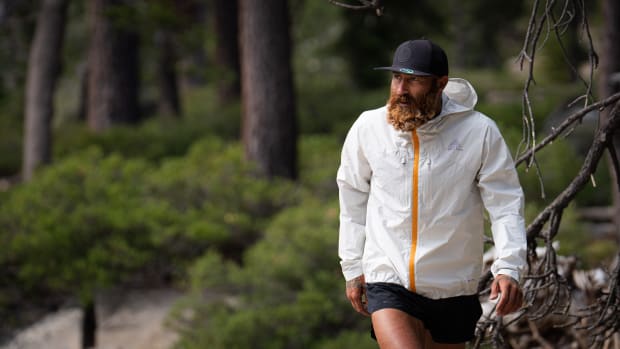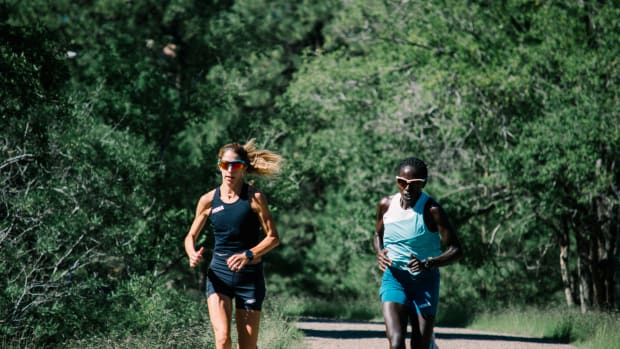Pikes Peak all-time record holder Carlin Dunne on Race to the Clouds
It’s 2 a.m. on Wednesday, June 22, 2016, in Colorado Springs. The Pikes Peak SquadraAlpina (PPSA) team grabs their gear and they hop in the rental car. Taillights on, the team begins their one-hour drive, stopping for coffee at the 24-hour 7-Eleven. The members of the SquadraAlpina are making their way towards the start line at the bottom of Pikes Peak's Mountain, also known as America's Mountain, where a total of 100 motorsport athletes will gather on Sunday to race in the Broadmoor Pikes Peak International Hill Climb (PPIHC).
This Sunday marks the 100th anniversary of PPIHC, making it the second oldest race in the U.S. behind the Indy 500. The PPIHC is also one of the most extreme road races in the world with 156 turns for 12.42 miles to the summit of Pikes Peak, which stands at a total 14,115 feet. As part of this year’s 100th anniversary, Ducati Motorcycles has partnered with the PPIHC to unveil the Race Smart Program, which will be led by the members of the Pikes Peak Squadra Alpina. Managed by Spider Grips team principals Paul and Becca Livingston, the Race Smart Program will ensure that all Motorcycle Division Competitors are safe and prepared for the conditions of Pikes Peak.
• Friday Night Lights' Taylor Kitsch on Spartan Race, Navy SEAL training
In the days leading up to the PPIHC, racers are given four practice days, with three of those serving as qualifying days. However, because the race is situated in Pike National Forest, practice runs must take place between the wee hours of 5:30 and 8:30 a.m.. Accompanying the racers on these practice runs are the four members of the Squadra Alpina: Carlin Dunne, MickyDymond and brothers Greg and Gary Tracy. Each member is a former Ducati Motorcycle PPIHC champion.
Earlier this week, SI Edge spoke with Carlin Dunne, who, as one of only three motorcyclists to break the 10:00-minute barrier at PPIHC, holds the All-Time Course Record at PPIHC with a time of 9:52.819 (2012, DucatiMultistrada 1200 S). Read on to learn more about the “King of the Mountain” and the wise words he offers on how to maneuver the 156 turns fixed in America's Mountain.
Eve Wulf: How did you get involved with motorcycle racing?
Carlin Dunne: My dad, who is from South Africa, became a motorcycle racer pretty young. He was offered a ride in the States when he was 17, so he came to the U.S. and took advantage of that. He got a taste of living in the U.S. and didn’t go back [to South Africa]. He went to California, and that’s where I’m from. So, with a father whose first passion is motorcycling, motorcycle riding was inevitable [for me].
EW: With your dad serving as your inspiration for motorcycle racing, is he your greatest influence?
CD: He was an early influence, but influence has come in so many ways from so many people. It’s hard just to pick one. Motorcycling is emotional and personal, so it’s hard to pinpoint one person if I had to. But if I had to choose one person, it would be a family friend of ours who passed away motorcycle racing. He took me racing when I was young; he took me under his wing. He taught me about sportsmanship, about having fun, about work ethic. But first and foremost, he taught me that I should love what I’m doing. That’s been my main thing my whole motorcycle career; just to have fun.
EW: Can you tell me more about PPIHC and the Race Smart Program?
CD: This is its 100th anniversary. It’s the second oldest race in the United States. It’s such a key part of motorsports and Colorado Springs and Colorado’s history. I think for every member of the Squadra Alpina team the race has given us so much and we all have our personal relationship with it, so when the opportunity came up to give something back to PPIHC and help ensure its continuation, all of us jumped at the chance to do it. PPIHC and Ducati Motorcycles worked with each other to come up with the Race Smart Program. It was collaboration between people at both organizations. The idea behind the program was to provide mentorship, coaching, assistance and some sense from people who were actually involved in [the race]. The key part of the Race Smart Program is the Squadra Alpina group. It will continue to evolve and consist of many things to make sure riders ride smart and have a great experience at Pikes Peak. We are the guys who are helping, coaching, and directly involved in the practices and race itself. We have been talking about the program for quite a long time, so to actually see the program come together this week has been awesome because it has worked exactly as planned. We didn’t know if riders would take advantage of it. It’s exhausting riding and working with these guys, but it has been amazing to watch these riders improve. We’re enjoying their experience with them. We're excited and I think everyone here is elated with the results from it—myself, Micky Dymond, Greg Tracy, Gary Tracy and Paul and Becca Livingston who orchestrated this with Ducati. We hope to see it grow because it is organic. Just to be able to have open lines of communication and a sounding board for concerns and questions is the key point for what we're doing. People are taking to it really well.
EW: Can you describe the conditions at Pikes Peak?
Dunne: It’s road racing. It’s asphalt. You’re starting at 7,000 feet and going to 14,000 feet. 9 minutes and 52 seconds. It’s very fast. It demands a level of focus and drive that is so hard to achieve. You have to be so on; any mistake can lead to you losing your life. You’re gambling with a lot, but it is calculated risk, not reckless abandon. You spend a lot of time trying to perfect every turn, every crack in the road. That's what it takes to set a record at a race that is 100 years old.
EW: So did those nine minutes feel like nine seconds or nine hours?
CD: It felt like nine hours. It seems like forever. You know, the thing is you can’t beat yourself up. You're hypercritical of everything you're doing. You can't dwell because you have hundreds of turns in front of you. You can’t stop. It’s just hard to put into words.
•Inside the rise of cycling's gravel grinders
EW: How do you train for the conditions of Pikes Peak?
CD: Conditioning consists of a ton of cardio. Being from California, I’m able to climb similar altitudes and really get a good workout with high altitude training. It's a lot more training than one might think. When you’re up there with a 150[bpm] heart rate, you’re pushing your mind to the edge, your body to the edge, and your motorcycle to the edge. It’s 7,000-14,000 feet. You don’t really know what it does to you; you can't have any reduction in your focus at all. I mean you’re going for victory at Pikes Peak.
EW: What advice would you offer rookies riding in PPIHC?
CD: If I were to recommend anything to someone riding Pikes Peak, it would be to train yourself to focus. Plan to focus, plan to come here with an open mind, and plan to have fun. Don’t over think things. Focus on racing against the mountain, not against your fellow riders because the mountain is far larger and far tougher and stronger than any competitor. Where you end up once you make it to the top is where you end up. Focus on beating the mountain.
EW: Favorite moment in your motorcycle career?
CD: Winning Pikes Peak for the first time. When we went there in 2011 it was an amazing experience because we didn't expect that to happen and we had been met with so many issues beforehand. I mean, our truck had broken down; we didn't have a place to stay. We had any issue you can imagine. I had to hitchhike to practice one day; I put everything I could fit in my lap, got on my bike, and followed a truck in the dark. I got to practice at 3 a.m. The whole time you're being pushed to the brink about thinking you can't do this. Then race day came, and we were exhausted, and it had been such a long week. We lined up on the starting line, focused and uncertain, but ended up winning. It was just an absolute surreal experience. I crossed the line and I looked back and looked around and I was like, ‘I’m the first guy here.’ I couldn’t believe it even though I had prepared for it. Pikes Peak is so unique; words just can’t describe what it felt like. (Dunne finished the race with a time of 11:11.32, which was a new record for motorcycles at PPIHC.)
• The rise of American Ninja Warrior gyms, ninja-style training
EW:Who is your best friend other than your motorcycle?
CD: Probably my dog. He always loves to go anywhere with me. He’s the ultimate training buddy and he’s always excited to see me.
EW: Imagine yourself, right now, riding on your favorite course on your favorite motor vehicle. Are you in California or Colorado? Is it Baja or Pikes Peak? Are you on the Ducati Multistrada? What's the weather like? Are you alone or with your best buddies?
CD: You know, I'll describe this morning. We woke up at 2 a.m. The weather was perfect. We were on Pike’s Peak riding Ducati Multistradas. I was with three racers, the other members of Squadra Alpina, our technicians, Paul and Becca Livingston from Spider Grips and a bunch of people who I respect and adore. We were riding in one of the most amazing places in the world on one of the most unique courses in the world. I stopped at the top and said, ‘I’m so lucky to be doing this.' It was an aha moment, a personal moment.








